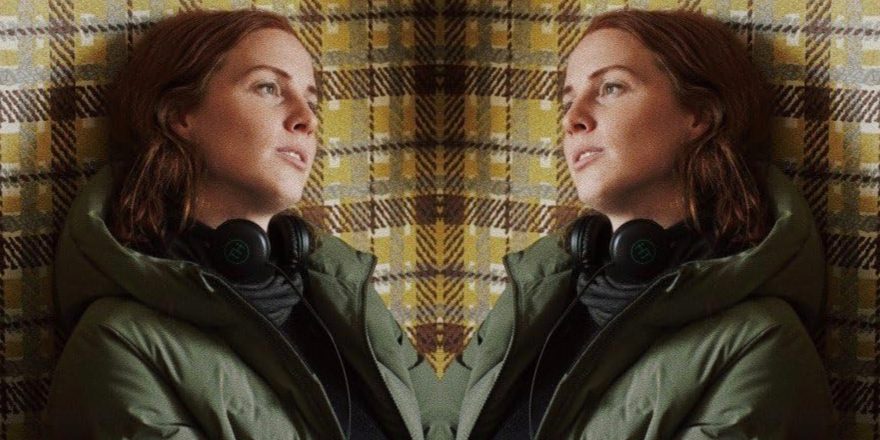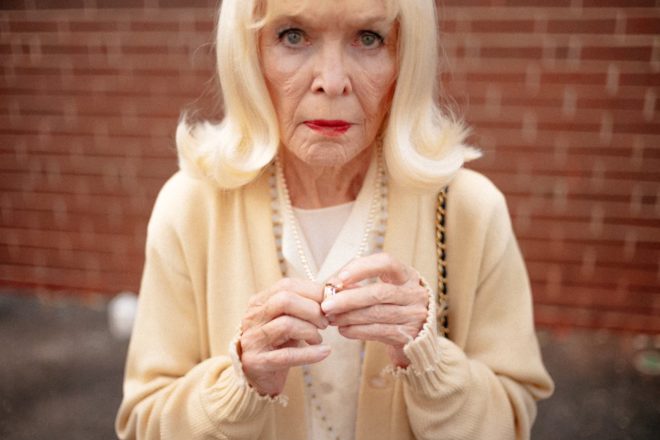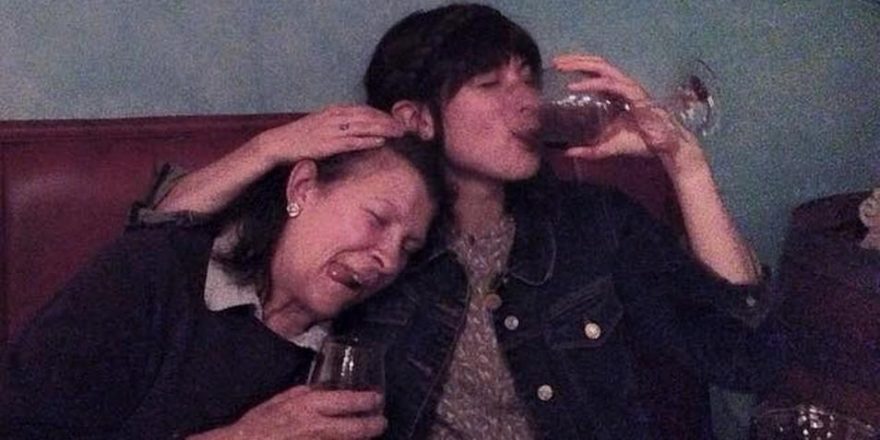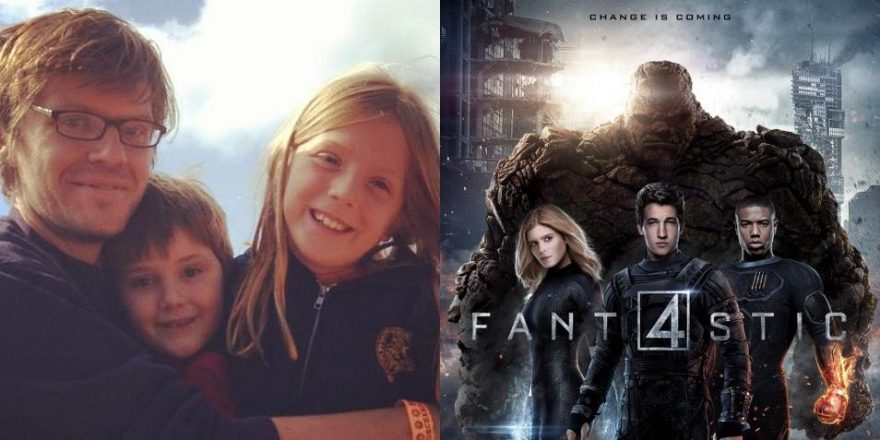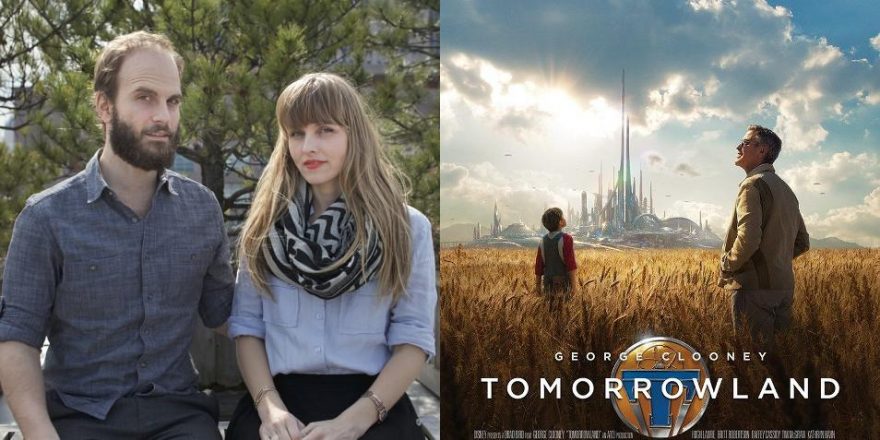In the weeks leading up to the release of writer-director Kelsey Taylor’s directorial debut, To Kill a Wolf, the filmmaker sits down to interview herself in this no-holds-barred conversation – there’s nothing worse than the person asking the questions knowing exactly which ones you don’t want to answer…
Kelsey: OK. Let’s start with a big easy lob of a question – you made an indie film. You must be pretty proud of yourself.
Kelsey: Sorry, is there a question in there?
Kelsey: Are you proud of your first attempt at creating a meaningful piece of work and putting it out into the world where people can freely judge and rate it with numbers and letters?
Kelsey: I’m not sure pride is the emotion I’m feeling right now …
Kelsey: Because it’s not very good?
Kelsey: I’m not sure I can be an objective judge at this point. I don’t think I’ll ever be satisfied with the work I make. I think that’s just my nature as an artist, to be unsatisfied, to see the failings of what I’ve made and want to improve. Always aiming a little higher than my ability.
Kelsey: Let’s talk about Letterboxd.
Kelsey: Oh God. I try not to get caught up in Letterboxd.
Kelsey: You read every review. don’t you?
Kelsey: I just can’t anymore. I spent a whole day after our premiere in a dark hotel room reeling from one comment that just crushed me.
Kelsey: Sounds kind of pathetic. Aren’t you supposed to have tough skin in this industry??
Kelsey: Yeah, I’m working on that. But I also think it’s not a bad thing to feel things deeply. I think that’s what makes me an empathetic writer and director and I like to look at it as a strength. Of course, that doesn’t mean hurting hurts less. And no matter how many nice things people say about the film, it’s the bad things that tend to stick. Maybe because they resonate with me more than the good ones …
Kelsey: Would you say you crave external validation?
Kelsey: Don’t all artists crave external validation? Don’t you want to know that what you made resonates with other people?
Kelsey: And if it doesn’t? I mean, that must mess with your head. It would mess with my head if people didn’t like the thing I’d poured the last seven years of my life into. Makes you wonder if it was worth it, you know, making art that no one asked for, or wants.
Kelsey: Yeah … It does … There was a great book I read right after the making of the film, Fear and Art, that helped me get through a lot of complicated feelings about the process of being an artist – the book also helped me come to terms with calling myself an artist.
“To the artist, all problems of art appear uniquely personal. Well, that’s understandable enough, given that not many other activities routinely call one’s basic self-worth into question.”
― David Bayles, Art and Fear
Kelsey: Based on the first half of this conversation, I’m guessing your self-worth fluctuates a lot?
Kelsey: I think the quote I referenced says it all.
Kelsey: Do you rely on quotes because you have nothing original to add to a conversation??
Kelsey: Yikes. I didn’t mean it as a cop-out – I just think many profound things have been said more eloquently by people who have been at this longer than me.
Kelsey: So, yes.
Kelsey: Yes.
Kelsey: Do you think embracing humor in the formatting of this interview was an intelligent choice?
Kelsey: You know, I don’t get a lot of opportunities to indulge in humor in my work – it seemed like it might make this process of interviewing myself a little less painful.
Kelsey: I have it on good authority that people don’t think you’re funny.
Kelsey: Oh really? I mean … They might be right.
Kelsey: Do you think you’re funny?
Kelsey: I’m not going to say that.
Kelsey: OK, one final question – do you think you’ll ever be truly successful??
Kelsey: Well, it depends on how you define success.
Kelsey: I’m asking how you define it and if you have any chance of finding it.
Kelsey: For me, success is sustainability. Having the opportunity to continue making films over the course of my life – to tell the stories I want to tell and continue to grow as a filmmaker. Whether or not I find that success is another question … But I will certainly keep fighting for every opportunity to do so.
Kelsey: Any plans to sell out?
Kelsey: You mean direct a Marvel movie or something?
Kelsey: Yeah. I mean, you don’t want to make indie movies forever, right?? It seems pretty grueling – seven years of your life, you didn’t even go to Sundance, and honestly, I don’t know how indie filmmakers make a living.
Kelsey: Yeah, that’s a tough question … Coming from the commercial world, I’ve seen what it looks like to direct by committee and while there’s a lot more money to do what you want, there’s a lot less freedom. I’m not sure I’d be willing to give up that freedom. And I think it’s important to continue making challenging cinema. We need people to keep doing that – and we need people to seek out challenging films. I’m quite concerned about the latter continuing to exist.
Kelsey: No kidding. Because there are already so many powerful and truly incredible indie films made by visionary directors that aren’t being seen. It must be pretty daunting to try to compete with people who are so undeniably talented – I’m dying to see Sorry Baby, by the way.
Kelsey: Well, I’d like to think it’s not a competition … That there’s a place for all of us and our unique stories.
Kelsey: I don’t know. Seems pretty competitive when you’re all competing for eyeballs – social media, video games on the rise and society on the precipice of having custom AI content at our fingertips. For God’s sakes, do you really think you can compete with The Real Mormon Housewives?? That’s some pretty fascinating stuff.
Kelsey: When you put it like that … I don’t know. It does seem a little hopeless …
Kelsey: What do you know about verticals?
Kelsey: Verticals?
Kelsey: And on that note, do you have anything you’d like to leave us with today?
Kelsey: You know, I resent what you said about relying on quotes – I actually want to leave you with one more gem from Fear and Art that has resonated with me in particular as I struggle to recover from making an indie film:
“It all comes down to this. You have a choice, or more accurately a rolling tangle of choices between giving your work your best shot and risking that it will not make you happy or not giving it your best shot and thereby guaranteeing that it will not make you happy. It becomes a choice between certainty and uncertainty and curiously, uncertainty is the comforting choice.”
Kelsey: Great. Well, it seems fitting to end with someone else’s profound insight … This has been … illuminating. We’re all wishing you best of luck with your “success.” And just a thought, maybe you shouldn’t be so hard on yourself. Maybe you should leave that to the critics.
Kelsey: Maybe …



